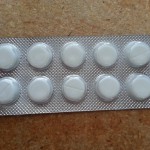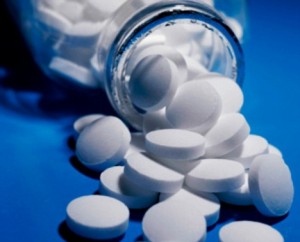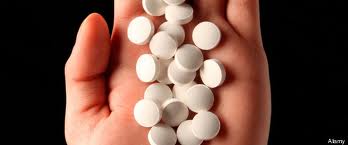More Evidence That Regular Antidepressants Do Not Work in Bipolar Depression
Psychiatrists most commonly prescribe antidepressants for bipolar depression, but mounting evidence shows that the traditional antidepressants that are effective in unipolar depression are not effective in bipolar disorder. At the 2013 meeting of the American Psychiatric Association, researcher Jessica Lynn Warner reported that among 377 patients with Bipolar I Disorder who were discharged from a hospital, those who were prescribed an antidepressant at discharge were just as likely to be remitted for a new depression than those not given an antidepressant.
The average time to readmission also did not differ across the two groups and was 205 +/- 152 days. Those patients prescribed the serotonin and norepinephrine reuptake inhibitor (SNRI) drug venlafaxine (Effexor) were three times more likely to be readmitted than those not prescribed antidepressants.
These naturalistic data (generated from observations of what doctors normally do and information in the hospital’s clinical notes) resemble those from controlled studies. In the most recent meta-analysis of antidepressants in the treatment of bipolar depression (by researchers Sidor and MacQueen), there appeared to be no benefit to adding antidepressants to ongoing treatment with a mood stabilizer over adding placebo. Randomized studies by this editor Post et al. and Vieta et al. have shown that venlafaxine is more likely to bring about switches into mania than other types of antidepressants such as bupropion or selective serotonin reuptake inhibitors (SSRIs).
In addition, a naturalistic study published by this editor Post et al. in the Journal of Clinical Psychiatry in 2012 showed that the number of times antidepressants were prescribed prior to a patient’s entrance into a treatment network (the Bipolar Collaborative Network) at an average age of 40 was related to their failure to achieve a good response or a remission for a duration of at least six months during prospective treatment.
Editor’s Note: Antidepressants are still the most widely used treatments for bipolar depression, and their popularity over more effective treatments (mood stabilizers and some atypical antipsychotics) probably contributes to the fact that patients with bipolar disorder receiving typical treatment in their communities spend three times as much time in depressions than in manic episodes. Using other treatments first before an antidepressant would appear to do more to prevent bipolar depression. These treatments include mood stabilizers (lithium, lamotrigine, carbamazepine, and valproate); the atypical antipsychotics that are FDA-approved for monotherapy in bipolar depression, lurasidone (Latuda) and quetiapine (Seroquel); and the combination of olanzapine and fluoxetine that goes by the trade name Symbiax.
Evidence from several sources suggests that the SNRI venlafaxine may be a risk factor for switches into mania and lead to re-hospitalizations. Other data suggest that in general, in bipolar depression, augmentation treated with antidepressants should be avoided in several cases: in childhood-onset bipolar depression, in mixed states, and in those with a history of rapid cycling (4 or more episodes per year).
FDA Approves Lurasidone for Bipolar Depression
Last year the BNN summarized two presentations from the 2012 meeting of the American Psychiatric Association showing the antidepressant efficacy of the atypical antipsychotic lurasidone (Latuda) in bipolar depression. Lurasidone was more effective than placebo both when prescribed alone (monotherapy) and when prescribed as an add-on to the mood stabilizers lithium or valproate.
In June 2013, the Federal Drug Administration (FDA) approved lurasidone as both a monotherapy and as an adjunctive therapy with lithium or valproate for bipolar depression. Previously the only FDA-approved agents for bipolar depression were the atypical antipsychotic quetiapine (Seroquel) and the combination of the atypical antipsychotic olanzapine and fluoxetine.
Lurasidone’s precise role in therapeutics remains to be explored, but its side effects profile is of particular interest, as it appears to be less sedating than the other atypical antipsychotics noted above. It also appears to have fewer side effects in the realm of weight gain, cholesterol or triglyceride increases, and increases in blood sugar and insulin resistance.
Antibiotic Minocycline Could Improve Bipolar Depression
In an abstract presented at the 2013 meeting of the Society of Biological Psychiatry, Iosifescu et al. reported that the antibiotic minocycline, which has showed anti-inflammatory, neuroprotective, and mitochondrial-sparing effects in animal models, brought about improvement in patients with bipolar depression. Doses of 100mg to 300mg per day were successful in this small open study.
There are some positive placebo-controlled data in patients with schizophrenia who were prescribed this antibiotic. However, until now it had not been studied in bipolar disorder. The preliminary data reported here suggest that controlled double-blind studies of this agent are needed in bipolar depression.
The abstract (#497) can be found in the 2013 convention supplement (9S) to the journal Biological Psychiatry.
Armodafinil: An Antidepressant For Bipolar I Depression
 At a recent scientific meeting, researcher Joe Calabrese reported that armodafinil (Neuvigil), a drug that is FDA-approved for the treatment of narcolepsy, performed significantly better than placebo at producing antidepressant effects in bipolar depression when added to treatment with mood stabilizers. At a dose of 150mg, the drug behaved less like a psychomotor stimulant and more like a traditional antidepressant in that the antidepressant effects were delayed in onset. Stimulants have a rapid onset of action. Armodafinil was well-tolerated, not seeming to produce weight gain or switches into mania.
At a recent scientific meeting, researcher Joe Calabrese reported that armodafinil (Neuvigil), a drug that is FDA-approved for the treatment of narcolepsy, performed significantly better than placebo at producing antidepressant effects in bipolar depression when added to treatment with mood stabilizers. At a dose of 150mg, the drug behaved less like a psychomotor stimulant and more like a traditional antidepressant in that the antidepressant effects were delayed in onset. Stimulants have a rapid onset of action. Armodafinil was well-tolerated, not seeming to produce weight gain or switches into mania.
Editor’s Note: At the moment, quetiapine (Seroquel) is the only FDA-approved monotherapy for the treatment of bipolar depression. Lurasidone (Latuda) may soon be approved, as we reported in BNN Volume 16, Issue 2 from 2013. It now looks as though armodafinil could become the third approved agent for bipolar depression.
Quetiapine has efficacy in preventing depressive and manic recurrences both alone in monotherapy and in combination therapy with lithium or valproate. So far only the combination therapy is FDA-approved for preventative purposes. The data on the long-term effects of armodafinil and lurasidone are eagerly awaited, as they are a critical component of the treatment of bipolar depression.
New Findings On IV Ketamine For Treatment-Resistant Depression
We’ve written before about the rapid-onset antidepressant effects of ketamine, an anesthetic that is used in human and veterinary medicine. At lower doses, intravenous (IV) ketamine can induce antidepressant effects in both unipolar and bipolar depressed patients. When doses of 0.5mg/kg are infused over a period of 40 minutes, antidepressant effects appear within two hours but are short-lived, typically lasting only three to five days. Results have been consistent across studies at Yale University, the Icahn School of Medicine at Mount Sinai, and the National Institute of Mental Health. So far, clinical use has been limited by the short duration of the effects and the required presence of an anesthesiologist, which can be prohibitively expensive for many patients.
In a cover story in the January 2013 issue of Psychiatric Times, Arline Kaplan reviewed new findings about ketamine. The drug is a high-affinity, noncompetitive NMDA-glutamate receptor antagonist. It is not yet FDA-approved for use in depression.
According to a recent article by Murrough and Charney, response rates to ketamine are around 54% and the drug “appears to be effective at reducing the range of depressive symptoms, including sadness, anhedonia [the loss of ability to experience pleasure], low energy, impaired concentration, negative cognitions, and suicidal ideation.”
David Feifel, Director of the Neuropsychiatry and Behavioral Medicine Program at the University of California at San Diego (UCSD), instituted a program there in which patients can receive treatment with ketamine for clinical purposes (rather than for research) after signing detailed informed consent forms and being warned that the treatment is not yet approved for depression and that its effects may be temporary. The UCSD Medical Center’s Pharmacy and Therapeutics Committee, with the support of the anesthesiology department, agreed that nurses may administer the ketamine in an outpatient setting, making the procedure more affordable.
There is still the question of how to make ketamine’s effects last. Read more
Good Weight Loss With Bupropion Plus Naltrexone
 A 2013 article by Smith et al. in the journal Diabetes, Obesity, and Metabolism reports that obese patients treated with the combination of bupropion (Wellbutrin) and naltrexone (Revia) had excellent weight loss and reduction in body fat compared to those treated with either drug alone or with placebo. The combination resulted in about a 14% reduction in body fat, while placebo, bupropion alone, and naltrexone alone each brought about only a 3-4% reduction.
A 2013 article by Smith et al. in the journal Diabetes, Obesity, and Metabolism reports that obese patients treated with the combination of bupropion (Wellbutrin) and naltrexone (Revia) had excellent weight loss and reduction in body fat compared to those treated with either drug alone or with placebo. The combination resulted in about a 14% reduction in body fat, while placebo, bupropion alone, and naltrexone alone each brought about only a 3-4% reduction.
Editor’s Note: Researcher Roger McIntyre is an expert on the metabolic syndrome in patients with bipolar illness and has been using this combination with success in patients with mood disorders. He finds the combination of bupropion and naltrexone more helpful than the anticonvulsants topiramate (Topomax) or zonisamide (Zonegran) or the anti-diabetes drug metformin.
Since obesity and the metabolic syndrome occur in approximately 40 to 50% of bipolar patients and significantly increases cardiovascular risks such as heart attack and stroke, and since bupropion is widely used in the treatment of bipolar depression, this combination appears worthy of consideration for those with obesity. Its use should be accompanied by a good diet and an exercise regimen. Decreasing cardiovascular risk is a very important component of the treatment of bipolar disorder, and the combination of bupropion and naltrexone could have substantial benefits.
Memantine May Be Useful in OCD, ADHD, and Autism
Memantine (Namenda) is an N-methyl-D-aspartate (NMDA) glutamate receptor antagonist that is FDA-approved for the treatment of Alzheimer’s dementia. Its use in other illnesses such as bipolar disorder and autism is currently being explored.
As we have written in previous issues of the BNN, A. Anand et al. reported in 2012 that in bipolar depression, memantine has an initial antidepressant augmentation effect when added to lamotrigine, an inhibitor of glutamate release. Koukopoulos et al. also reported in 2012 that in an open study, memantine had a large and sustained effect in previously treatment-resistant patients with bipolar disorder, producing an impressive 60-70% rate of excellent response at 6 months and again at 12 months of follow-up.
There is some evidence that memantine can be useful in obsessive-compulsive disorder (OCD). In a randomized double-blind placebo-controlled study of memantine combined with fluoxetine published by Ghaleiha et al. in 2012, patients with moderate to severe OCD taking memantine and fluoxetine were more likely to achieve remission after 8 weeks than patients taking placebo and fluoxetine.
Attention-deficit/hyperactivity disorder (ADHD) is another condition that memantine may be able to treat. Disturbances in NMDA receptor activity are thought to play a role in ADHD. Small, preliminary studies of memantine in ADHD have been promising.
New research has begun to explore memantine’s effects in autism. In one recent randomized, double-blind, placebo-controlled study published by Ghaleiha et al. in the International Journal of Neuropsychopharmacology, memantine produced improvement in children with autistic disorder when the drug was added to a treatment regimen that included risperidone, which blocks dopamine D2 receptors and is FDA-approved for the treatment of schizophrenia and mania, as well as autism.
However, at the 2012 meeting of the American Academy of Child and Adolescent Psychiatry, Robert Findling presented a poster on extended release memantine (Namenda) in children with autism, a study with negative results. This was a monotherapy study, unlike the above studies in which memantine was added to treatment with another drug. Findling found that extended release memantine (at doses of 3mg to 15mg per day) was well tolerated in children with autism, but the drug on its own was not significantly more effective than placebo in these preliminary studies.
Editor’s Note: Taken together, these data suggest an emerging role for memantine and possibly other drugs that work through NMDA receptor blockade in several disorders associated with repetitive behavior, like OCD and autism. The role of memantine augmentation in each of these syndromes deserves further exploration.
The Unfolding Story of Poor Response to Antidepressants in Bipolar Depression
The role of the traditional antidepressants in the treatment of depression in bipolar illness remains controversial. Despite mounting evidence that they are not efficacious in the treatment of bipolar depression, they are still among the most widely used treatments for that condition. At the first biennial conference of the International Society for Bipolar Disorders held in Istanbul this past March, Mark A. Frye and Shigenobu Kanba chaired a symposium on antidepressant-induced mania and individualized treatment for bipolar depression.
This editor (Robert M. Post) discussed factors influencing antidepressants’ effects on patients with bipolar depression. In a recent meta-analysis, researchers Sidor and MacQueen reviewed data from studies encompassing 2373 patients with bipolar depression and found that antidepressants had no significant benefits over placebo on measures of response or remission. Pooled estimates for a thousand patients showed no increase in patients’ risk of switching into mania after treating with antidepressants. However, in a smaller sub-analysis, the risks of switching into mania following treatment with the older tricyclic antidepressants (43%) and venlafaxine (15%) was greater than the risk of switching after being treated with SSRIs (7%) or bupropion (5%).
There is a conundrum in the literature. While antidepressants don’t work very well in bipolar depression, there is a small subgroup of patients who, having responded well to antidepressants for two months, benefit more from continuing the antidepressant treatment than from discontinuing the drug. Continued treatment with adjunctive antidepressants (added to regular treatment with a mood stabilizer or an atypical antipsychotic) was associated with fewer relapses into depression over the next year when the antidepressants were continued compared to when they were discontinued. Lori Altshuler et al. have published two uncontrolled studies to this effect, Russell Joffe et al. have published one, and a more recent randomized study of this by Nassir Ghaemi replicated some of the results in patients who had non-rapid-cycling bipolar disorder. At the same time, the literature shows that there are number of risk factors for switching into hypomania during antidepressant treatment in bipolar depression.
Risk factors for switching into mania upon treatment with an antidepressant include: younger age, bipolar I compared to bipolar II, rapid cycling in the past year, mixed depression, use of older tricyclic antidepressants compared to newer second-generation antidepressants, use of noradrenergic active antidepressants compared to those that act on serotonin or dopamine, and a history of substance abuse. Read more
Treating Bipolar Depression in Youth
 At the Ryan Licht Sang pediatric bipolar conference in March, researcher Karen Dineen Wagner summarized the controlled data on treatment of bipolar depression in children. Almost no data exist, with the exception of one study in which quetiapine (Seroquel) was not found to be more effective than placebo.
At the Ryan Licht Sang pediatric bipolar conference in March, researcher Karen Dineen Wagner summarized the controlled data on treatment of bipolar depression in children. Almost no data exist, with the exception of one study in which quetiapine (Seroquel) was not found to be more effective than placebo.
Unlike mania, for which there are several approved treatments for children aged 10 to 17, there are no FDA-approved treatments for bipolar depression in children.
In adults, quetiapine is the only approved monotherapy for bipolar depression, and the only other approved treatment is the combination of fluoxetine and olanzapine. Despite the frequency with which conventional antidepressants (SSRIs, SNRIs, bupropion, and tricyclic antidepressants) are prescribed for bipolar depression, the data on their efficacy is mostly negative, based on a 2010 meta-analysis by researchers Sidor and MacQueen.
Given that there is little data available even for adults, Wagner reviewed the open (uncontrolled) studies on depression in children with bipolar disorder. Some evidence of good response to lithium or lamotrigine can be found in case series and chart reviews. In studies of atypical antipsychotics for mania in children, the mania rating scales used contain items about depression, and these often show some improvement.
Wagner concluded that one option is to use monotherapy with atypicals, lithium, or lamotrigine in children with bipolar depression.
Wagner created a revised Mood Disorder Questionnaire for Adolescents (MDQ-A), which focuses on a possible diagnosis of bipolar disorder instead of unipolar depression. This was published in the Journal of Clinical Psychiatry in 2006 and we have reproduced it here. Dr. Wagner indicated that the instrument is more valid when the answers are supplied by a parent than by the adolescent.
Editor’s Note: The lack of research on the treatment of children with bipolar disorder is a public health problem. Read more
Possible Antidepressant Effects of Memantine
 In an 8-week study of memantine for augmentation of treatment with lamotrigine for bipolar depression, memantine’s effects were not statistically significant. However, during the first four weeks of the study, while memantine doses were slowly increased, memantine was associated with significant improvements on the Hamilton Depression Rating Scale (HDRS).
In an 8-week study of memantine for augmentation of treatment with lamotrigine for bipolar depression, memantine’s effects were not statistically significant. However, during the first four weeks of the study, while memantine doses were slowly increased, memantine was associated with significant improvements on the Hamilton Depression Rating Scale (HDRS).
From the abstract:
This proof-of-concept study failed to show a statistically significant benefit of memantine augmentation of lamotrigine for patients with BD-D over eight weeks. However, memantine had an antidepressant effect early on in the treatment while its dose was being titrated up. Larger placebo-controlled studies are needed to ascertain optimal timing and dosing for memantine augmentation of lamotrigine in BD-D.







